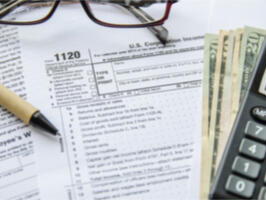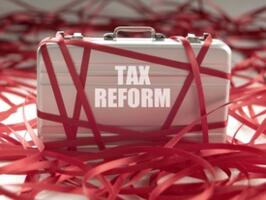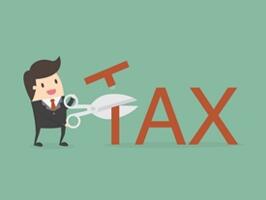The Five Commandments of Tax Reform
A Commentary By Froma Harrop
The tax code needs fixing to be fairer and less complex. But let's set some rules for this debate. Here are the Five Commandments of Tax Reform:
Thou shall simplify with care: Rep. Paul Ryan, Republican of Wisconsin, proposes a much simplified income-tax system. Gosh darn, you can do your taxes on a postcard.
His system is simple, all right. Simply put, working people pay all the income taxes, and the idle rich pay little or nothing. Here's how it works:
Couples with taxable income up to $100,000 ($50,000 for single filers) would pay a 10 percent tax rate. Those with higher income would pay 25 percent. There would be no more special deductions, exclusions or credits, except a health-care tax credit.
But interest, capital gains and dividends would not be taxed at all. It happens that the higher one's income, the more of that money comes on average from investments rather than the sweat of one's brow. The richest 400 taxpayers in 2007 (average income $345 million) made less than 7 percent of their total from salaries. Thus, Ryan would exempt 93 percent of their income from taxation -- while subjecting 100 percent of their gardener's. Nice try.
The rich shall pay more: Capital gains and corporate dividends are currently taxed at 15 percent. The wages of police officers, computer programmers and other solidly middle-class workers are taxed at far higher rates.
Democrats want to raise the rate on capital gains and dividends for upper-income Americans to 20 percent. Republicans howl that the higher rate would discourage "saving."
But recall that the sainted Ronald Reagan backed a hike in the capital-gains tax to 28 percent for high earners, up from 20 percent. Reagan reasoned that since the marginal rates were being slashed, there was no more justification for giving a special deal to rich investors. Perhaps he deserves the halo after all.
The middle class shall pay something: You can understand why Democrats would limit new tax increases to upper-income folk, who enjoyed enormous tax cuts during the George W. Bush era. A correction was in order.
But eventually everyone must pitch in. Politicians can't go on telling the middle class that it can enjoy new entitlements, and keep the ones it has, without paying more taxes.
The difficulty of getting this message across makes the VAT (value-added tax) a righteous idea. A kind of national sales tax, the VAT is considered regressive because the poor also pay it. But the social programs these taxes fund are progressive.
Thou shall not lie about the poor: It's not true that the poor don't pay taxes. They don't pay income taxes. But they do pay sales taxes, as well as payroll taxes for Social Security and Medicare.
Many states raise revenues through casinos, lotteries and other gambling activities, which low-income Americans heavily patronize. The poor also smoke and drink. Tobacco and alcohol are steeply taxed.
Thou shall not lie with numbers: Honest numbers can be used for false purposes. The top 1 percent of taxpayers do pay 40 percent of all federal income taxes. That sounds dramatic only until one sees how much dough this elite group rakes in.
The top 1 percent of households earns 23 percent of all adjusted gross income. It owns 35 percent of the national wealth. It received two-thirds of America's total gain in income from 2002 to 2007. Despite its "tax burden," the top 1 percent continues to pull away economically from everyone else.
The income tax remains one of those few progressive parts of the tax code: Those who can most afford it pay more taxes. Where's the problem?
Are the rich getting soaked? Yes, in a bath of champagne.
COPYRIGHT 2010 THE PROVIDENCE JOURNAL CO.
DISTRIBUTED BY CREATORS.COM
See Other Political Commentary.
See Other Commentaries by Froma Harrop
Views expressed in this column are those of the author, not those of Rasmussen Reports.
Rasmussen Reports is a media company specializing in the collection, publication and distribution of public opinion information.
We conduct public opinion polls on a variety of topics to inform our audience on events in the news and other topics of interest. To ensure editorial control and independence, we pay for the polls ourselves and generate revenue through the sale of subscriptions, sponsorships, and advertising. Nightly polling on politics, business and lifestyle topics provides the content to update the Rasmussen Reports web site many times each day. If it's in the news, it's in our polls. Additionally, the data drives a daily update newsletter and various media outlets across the country.
Some information, including the Rasmussen Reports daily Presidential Tracking Poll and commentaries are available for free to the general public. Subscriptions are available for $4.95 a month or 34.95 a year that provide subscribers with exclusive access to more than 20 stories per week on upcoming elections, consumer confidence, and issues that affect us all. For those who are really into the numbers, Platinum Members can review demographic crosstabs and a full history of our data.
To learn more about our methodology, click here.



